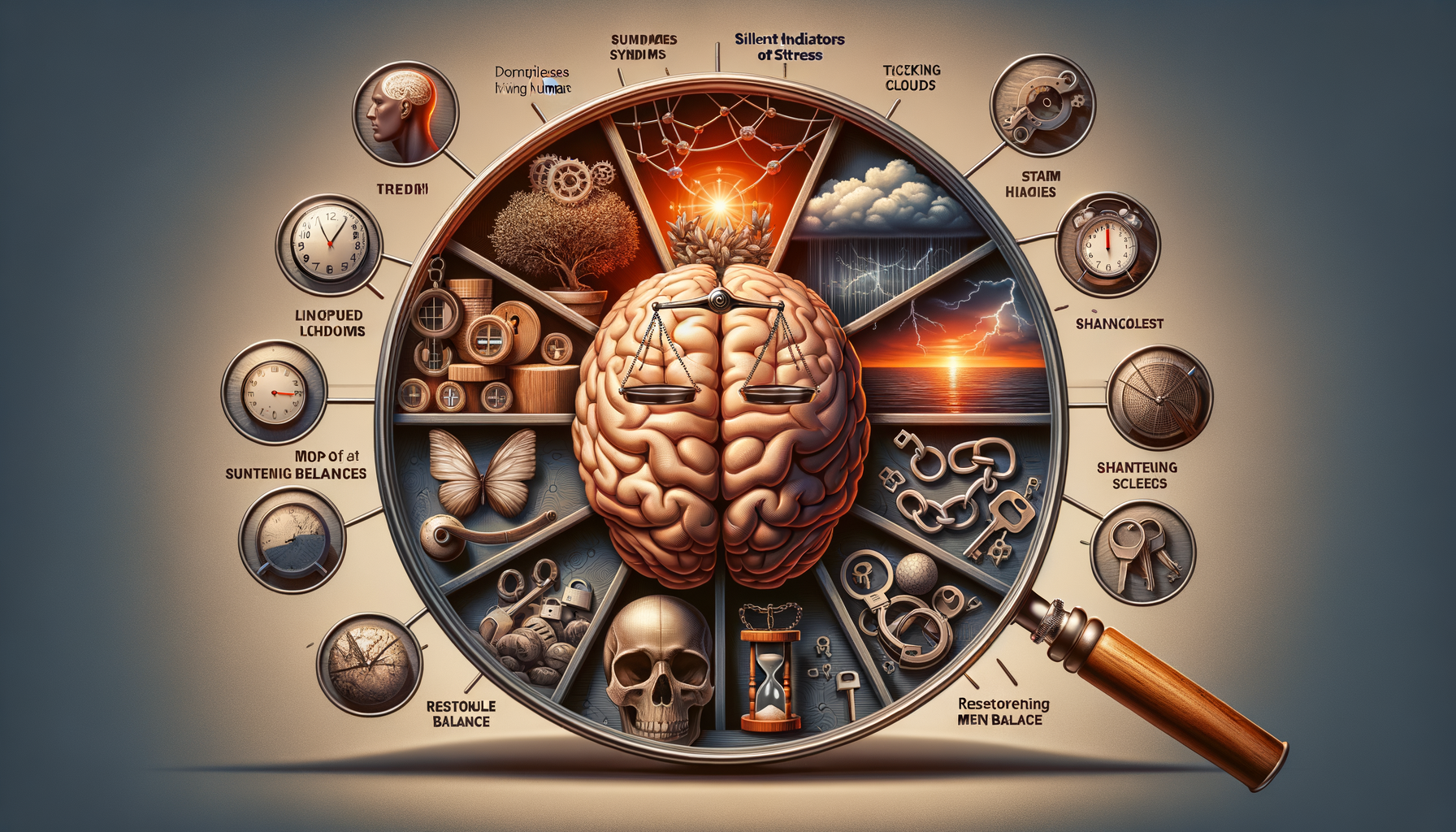Understanding the Silent Indicators of Stress
Stress often masquerades in subtle forms, making it challenging to identify. These silent indicators can manifest physically, emotionally, and behaviorally. Physically, stress may present as headaches, muscle tension, or digestive issues, which are often mistaken for common ailments. Emotionally, stress can lead to irritability, anxiety, or depression, affecting one’s overall mood and outlook. Behaviorally, stress might result in changes in eating or sleeping patterns, withdrawal from social activities, or decreased productivity.
Recognizing these subtle signs is crucial for addressing stress effectively. Studies have shown that chronic stress can lead to significant health issues, including heart disease and mental health disorders. Therefore, understanding the silent indicators is the first step towards managing stress and maintaining overall well-being.
To identify stress, one should pay attention to changes in their daily habits and emotional responses. Keeping a journal of moods and physical symptoms can help track patterns and triggers. Additionally, seeking feedback from friends or family members can provide an external perspective on behavioral changes that might be overlooked.
The Impact of Stress on Physical Health
Stress is not merely a mental or emotional issue; it has profound effects on physical health. The body’s response to stress involves the release of hormones such as adrenaline and cortisol, which prepare the body for a ‘fight or flight’ response. While this reaction is beneficial in short-term situations, chronic stress can lead to adverse health outcomes.
Research indicates that prolonged exposure to stress hormones can weaken the immune system, making individuals more susceptible to infections and illnesses. Additionally, stress has been linked to increased blood pressure, heart disease, and diabetes. The physical manifestations of stress, such as tension headaches and gastrointestinal problems, further highlight the need for effective stress management strategies.
To mitigate the physical impacts of stress, individuals should engage in regular physical activity, which has been shown to reduce stress hormones and improve mood. A balanced diet, adequate sleep, and relaxation techniques like meditation or yoga can also contribute to better physical health and stress management.
Emotional and Mental Ramifications of Stress
The emotional and mental effects of stress can be as debilitating as its physical impacts. Stress can lead to feelings of overwhelm, frustration, and anxiety, which can affect relationships and work performance. Over time, chronic stress can contribute to mental health disorders such as depression and anxiety.
Emotionally, stress can cause mood swings, irritability, and a sense of being on edge. These emotional responses can strain personal and professional relationships, leading to isolation and further stress. Mentally, stress can impair concentration, decision-making, and memory, affecting productivity and daily functioning.
Addressing the emotional and mental aspects of stress involves developing coping mechanisms and seeking support. Cognitive-behavioral therapy (CBT) has been effective in helping individuals reframe negative thought patterns and develop healthier responses to stress. Additionally, mindfulness practices, such as meditation and deep breathing exercises, can help calm the mind and improve emotional regulation.
Practical Strategies for Managing Stress
Managing stress effectively requires a proactive approach and the implementation of practical strategies. One of the most effective ways to manage stress is through time management. Prioritizing tasks and setting realistic goals can help reduce feelings of overwhelm and improve productivity.
Incorporating relaxation techniques into daily routines can also help manage stress. Techniques such as progressive muscle relaxation, guided imagery, and mindfulness meditation have been shown to reduce stress levels and improve overall well-being. Additionally, engaging in hobbies and activities that bring joy and relaxation can provide a much-needed respite from stress.
Social support is another critical component of stress management. Connecting with friends, family, or support groups can provide emotional support and practical advice for dealing with stress. Sharing experiences and feelings with others can also help reduce the sense of isolation that often accompanies stress.
Conclusion: Embracing a Balanced Approach to Stress Management
In conclusion, stress is a pervasive issue that affects individuals on multiple levels. By understanding the silent indicators and impacts of stress, individuals can take proactive steps to manage it effectively. Incorporating physical activity, relaxation techniques, and social support into daily routines can help mitigate the effects of stress and promote overall well-being.
Ultimately, managing stress requires a balanced approach that addresses physical, emotional, and mental health. By adopting healthy lifestyle habits and seeking support when needed, individuals can regain control over their stress and improve their quality of life. Remember, while stress is a natural part of life, it does not have to dictate your well-being.




Leave a Reply